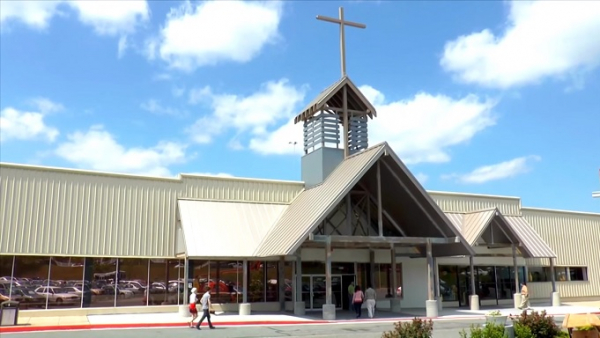
A Baltimore megachurch denied health and law enforcement officers access into its premises unless they have a search warrant, reports say. They were instead directed to speak with a church official.
Greater Grace World Outreach Church in Northeast Baltimore hosted services without masks or physical distancing. They ignored coronavirus regulations and refused to follow orders to close.
On a Wednesday night in March, city officials came and tried to enter the building, but were stopped by a guard who asked them to wait for his supervisor and inquired whether they had a search warrant.
"I just wanted you to wait for my supervisor," the security officer said. "Can you folks please wait a second? Do you have a search warrant?"
A police officer said: "We don't need a search warrant. This is the health department. This is the housing department. They have every right to go into your business. Please step aside."
The confrontation between the church and the city authorities that ensued is captured on a body camera video, the Baltimore Sun reports.
Peter Taggart, the church's chief of operations, walked outside a few moments later to face them. Someone removed the health department's closed notice from a church entrance, and they asked Taggart that they vacate the building.
"I'm not going to do that," Taggart reasoned. "We've got a message going on. We're worshipping God in there."
One of the first cops to arrive at the church that evening was a member of the "social club task force," which is responsible for patrolling pubs and restaurants.
After speaking with Taggart, the officer is heard on the phone saying: "We are at a standoff with a fake police force here. They're refusing to let us inside, so I'm going to have to call the district to have them bring me out some troops so we can empty out this church."
However, when additional cops arrived, it became clear that removing attendees from the church was both impractical and legally problematic. So, after a half-hour dispute on Moravia Park Drive's 6000 block of churches, where the health services had issued a close notice, the cops eventually opted to stand back and let the church continue to worship.
"There's obviously a lot going on nationwide, and I won't even pretend to understand the legalities of all of it," a lieutenant who arrived admitted to Taggart. "I don't think anybody knows the legalities of it. I think it's something that we're crossing as a bridge."
"We're not forcibly removing 300 churchgoers," he added.
In an earlier report, Pastor Thomas Schaller was quoted as saying, "This is not a barroom. This is not Home Depot. This is not a bowling alley. This is not the Baltimore Oriole stadium. This is a church. And when we come in here, God is in charge," during Wednesday's service.
Additionally, the health department's attempt to meddle in the church's activities was met with disappointment by several at Greater Grace.
"It's everything to me," said Maggie Lockhart, a church member. "It's my life. It's dragged on long enough."
For the next two weeks, the church continued function in its enormous auditorium without face masks or social distance while livestreaming sermons and other church activities. On those livestreams, Pastor, Schaller repeatedly raged against mask mandate and other religious prohibitions, declaring that he was "done" with the virus. He's more concerned with the psychological impact of pandemic constraints rather than the disease's impact.
"Many of us don't care about it anymore," Schaller said of COVID-19 during his Wednesday sermon.
On one of his Sunday sermons, Schaller bemoaned the fact that the public conversation is centered on the coronavirus rather than diseases spread via unprotected sex, such as HIV, which may be transmitted between homosexual people.
"I never hear about it," he said. "All I hear about is masks."
"Where's the church? It's shut down. People are afraid. People are gonna get sick, they're gonna die," said Schaller. "Shut it down - no."
Such disagreements have reached the United States Supreme Court, which in late last year, ruled 5-4 that a New York governor's decree was unconstitutional. The Supreme Court has ruled those prohibitions that treat churches, synagogues, and mosques differently than other indoor facilities are unconstitutional.
Back to the church and city standoff, the Baltimore Sun correspondent aptly noted that the incident demonstrates how implementing limitations at houses of worship might force authorities to weigh between religious freedom issues and health and safety issues.












